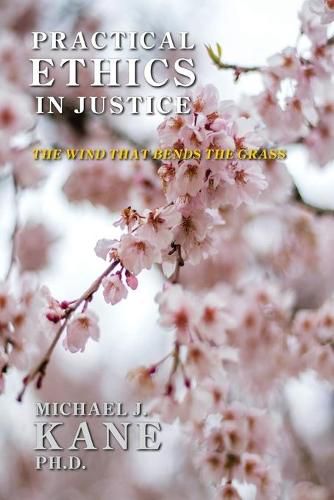Readings Newsletter
Become a Readings Member to make your shopping experience even easier.
Sign in or sign up for free!
You’re not far away from qualifying for FREE standard shipping within Australia
You’ve qualified for FREE standard shipping within Australia
The cart is loading…






This title is printed to order. This book may have been self-published. If so, we cannot guarantee the quality of the content. In the main most books will have gone through the editing process however some may not. We therefore suggest that you be aware of this before ordering this book. If in doubt check either the author or publisher’s details as we are unable to accept any returns unless they are faulty. Please contact us if you have any questions.
This book represents a practical approach to the complex study of ethics, morals, and philosophy. Too often, ethics-related textbooks overwhelm students with complicat- ed abstractions of philosophy, and subsequently, students do not appreciate the relevance of ethics and morals. This book is written for the criminal justice and forensic science student and practi- tioner. The book is sectioned into three parts; ancient philosophy, applied ethics, and transformation ethics. The ancient philosophy section includes the primary paradigms of virtue ethics, utilitarianism, and deontological ethics, with a unique inclusion of Bushido, Japanese wisdom. The applied ethics section looks at ethics focused on criminal justice and forensic practitioners and positions. The last section, transformation ethics addresses a personal path to become ethical, or to practice moral habits. The book itself culminates into a practical tool used to help understand moral dilemmas or to assist the reader in understanding moral problems. The 21 chapters themselves fit nicely into a semester, a chapter per lecture exclusive of examinations and other activity endeavors. There are several recommended activities throughout the book which can become class assignments or used by the casual reader for greater understanding of philosophies. Therefore, the book itself represents a training manual, a textbook, or even a self help book promoting the relevant moral and ethical understanding of the criminal justice and forensic science profession.
$9.00 standard shipping within Australia
FREE standard shipping within Australia for orders over $100.00
Express & International shipping calculated at checkout
This title is printed to order. This book may have been self-published. If so, we cannot guarantee the quality of the content. In the main most books will have gone through the editing process however some may not. We therefore suggest that you be aware of this before ordering this book. If in doubt check either the author or publisher’s details as we are unable to accept any returns unless they are faulty. Please contact us if you have any questions.
This book represents a practical approach to the complex study of ethics, morals, and philosophy. Too often, ethics-related textbooks overwhelm students with complicat- ed abstractions of philosophy, and subsequently, students do not appreciate the relevance of ethics and morals. This book is written for the criminal justice and forensic science student and practi- tioner. The book is sectioned into three parts; ancient philosophy, applied ethics, and transformation ethics. The ancient philosophy section includes the primary paradigms of virtue ethics, utilitarianism, and deontological ethics, with a unique inclusion of Bushido, Japanese wisdom. The applied ethics section looks at ethics focused on criminal justice and forensic practitioners and positions. The last section, transformation ethics addresses a personal path to become ethical, or to practice moral habits. The book itself culminates into a practical tool used to help understand moral dilemmas or to assist the reader in understanding moral problems. The 21 chapters themselves fit nicely into a semester, a chapter per lecture exclusive of examinations and other activity endeavors. There are several recommended activities throughout the book which can become class assignments or used by the casual reader for greater understanding of philosophies. Therefore, the book itself represents a training manual, a textbook, or even a self help book promoting the relevant moral and ethical understanding of the criminal justice and forensic science profession.